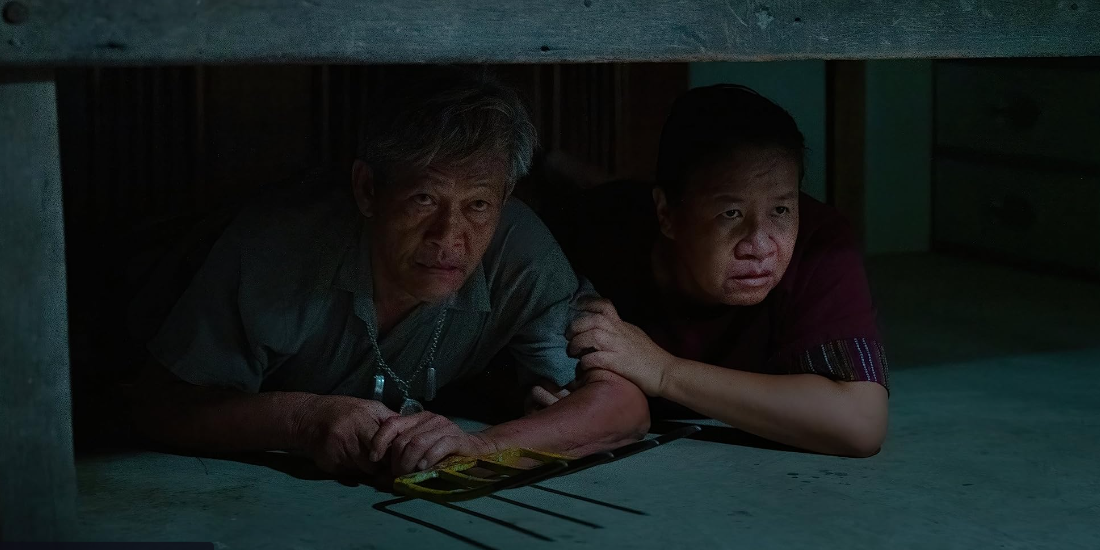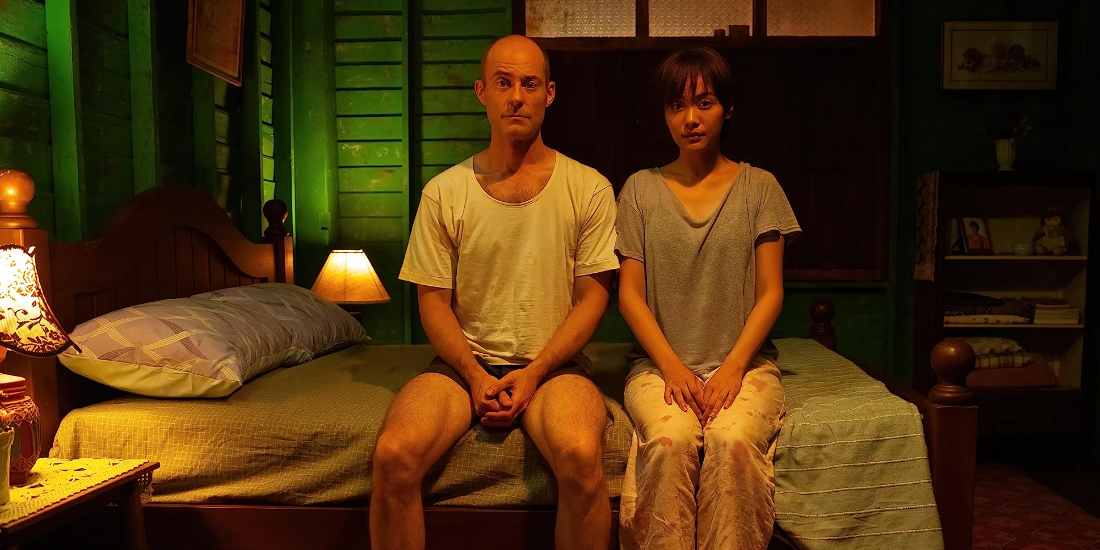Netflix’s ‘The Murderer,’ directed by Wisit Sasanatieng, is a Thai dark comedy film framed as a satirical murder mystery. Following a visit to her family home in a remote village in Isan, Thailand, Sai experiences a chaotic night that leads to the death of almost her entire family. Nawat Banluecha, the head inspector on the case, arrests Sai’s English husband, Earl Cunningham as the prime suspect in the murders. Now as Banluecha interrogates the night’s survivors, Sai may just be the only one who can save Earl from conviction.
The film presents a comically absurd narrative from the get-go and challenges the viewer’s assumptions around every turn. Its plot and themes primarily focus on subverting expectations through a wildly unpredictable night. Since the film is a crime mystery with a series of murders at its center, viewers must be curious to know if there is any connection between the film and reality. If so, here is everything you need to know about the origin of ‘The Murderer.’
The Murderer is a Work of Fiction
‘The Murderer’ is not based on a true story. The film is a work of fiction penned by Abishek J. Bajaj, with Wisit Sasanatieng as the director. This filmmaking duo has previously worked together on the 2021 horror thriller ‘The Whole Truth,’ a film exploring ominous family dynamics. Although ‘The Whole Truth’ and ‘The Murderer’ present two drastically different narratives, the filmmaker’s penchant for observing society through an isolated tale about a family carries forward from the former to the latter.

The film features several eccentric interpersonal relationships between Sai and her family. Though most of these relationships are destructive at their centers and played up for laughter, the dysfunctionality within family dynamics may present a relatable factor for some of the viewers. Similarly, the idea of garnering disapproval from the parents due to one’s choice of romantic partner is also a prevalent theme that subtly imbues the narrative with the lived experiences of several people.
‘The Murderer’ focuses on a conservative Thai family living in a distant village, who almost unanimously hold social prejudices toward Sai’s foreigner or “Farang” husband, Earl Cunningham. Although the family is blatant in their dislike for Earl from the start, a violently stormy night that effortlessly welcomes dread unlocks the actual depth of their hatred for him.
The film alternates between the night’s events and Banluecha’s interrogations of Sai, Earl, and their young niece June. Through the survivors’ respective statements, Banluecha tries to piece together the bigger picture while coming into the case with his own assumptions about the truth.
As the truth behind the night gradually reveals itself to Banluecha, his assumptions are constantly proven wrong in favor of an entirely different reality. By doing so, the film effectively makes a statement about prejudice and encourages the audience against blindly believing others’ opinions without forming their own. When Director Sasanatieng first read the film’s script, he instantly recognized its potential for dark comedy with relevant social messaging.
According to Sasanatieng, the film reflects Thailand’s depiction of grave crime cases as drama events for the news media. The film builds an unescapable air of intrigue and curiosity that catches the audience’s attention and urges them to seek answers. Through the same, the director wanted to parallel the genuine curiosity that grueling news often incites within the general public.
Furthermore, Sasanatieng wanted to highlight how dangerous it can be to simply accept what the news may offer on a surface level without forming one’s own take on the same. The film’s satirization of the investigation and the crime through a “comedy of errors” narrative, paired with the bright and colorful aesthetic that the film maintains, further highlights the story’s everpresent ironic theme.
In that regard, ‘The Murderer’ certainly harvests inspiration from real-life issues while still maintaining the genre’s comedic and light-hearted aspect. Nevertheless, the film does not have any firm basis in real-life events or people. Although its themes of prejudice and preconceived notions hold a reflection of real life, the absurdity with which the off-beat plot unfolds definitely cements the film as fiction.
Read More: Where Was Netflix’s The Murderer Filmed?


You must be logged in to post a comment.